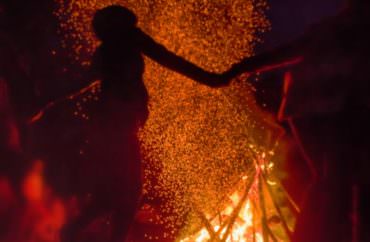TESTING THE FAITH
JUST 6 COMMANDMENTS? CHRISTIANS FEEL 4 NO LONGER IMPORTANT
Many think some of God's rules not crucial 'principles to live by'
Joe Kovacs
In a famous scene from “History of the World: Part I,” Mel Brooks portrays Moses descending Mount Sinai carrying three stone tablets after receiving God’s laws.
Moses then proclaims to the people: “The Lord Jehovah has given unto you these fifteen …”
He then accidentally drops and shatters one of the tablets, and declares: “Oy … ten! TEN Commandments! For all to obey!”
Now, a brand-new survey in real life is showing a somewhat similar scenario, with many Christians willing to drop four of the Ten Commandments from their life.
According to a poll by YouGov, only six of the ten are important to British Christians, with most saying the other four are not “important principles to live by” in the 21st century.
The six that folks are more inclined to follow are the ones that deal with relations with other people.
YouGov explains:
Unsurprisingly the commandment that the most Brits think is still important to live by is thou shalt not kill, at 93 percent, joint with thou shalt not steal. In the case of both commandments, they were seen as still important by 94 percent of Christians and 93 percent of those with no religion.Not bearing false witness (telling lies) about others came third among all groups, with 87 percent of all Brits, 90 percent of Christians, and 86 percent of those without a religion saying that it is still important to live by.Close to three quarters (73 percent) of the population at large say that not committing adultery is still a top life principle, including 69 percent of non-religious Brits and 76 percent of Christians.Honoring thy father and thy mother is still an important rule to follow for 69 percent of all Britons, including 78 percent of Christians and 60 percent of the non-religious.The final commandment that holds majority support is the Christian God’s instruction that people not covet the possessions of others. Six in ten (61 percent) of the public as a whole say this is still a good rule to live by, including 72 percent of Christians and 52 percent of those with no religion.
The four commandments which many Christians feel are less relevant today are the first four in the Decalogue, specifically those that deal with mankind’s relationship with God.
The survey indicates:
Fewer than a third of Britons (31 percent) say that people should not worship idols (defined in the survey as statues or symbols). Christians are split on whether they still consider this to be an important commandment, with 43 percent saying it is and 44 percent saying it is not. Meanwhile, only one in five non-religious Brits (20 percent) say it is still an important rule.Most people no longer mind taking the Lord’s name in vain. Just under a quarter (23 percent) of the overall population say that you may not use the word “God” in or as a curse, including 38 percent of Christians and just 7 percent of the non-religious.The first of the Ten Commandments – that I am the Lord thy God, You shall have no other God before me – is one of the least important according to the public. Only one in five Britons (20 percent) still believe that the Christian God’s monopoly on worship is still relevant in modern Britain (including 36 percent of Christians and just 5 percent of non-religious Brits).Keeping the Sabbath Day holy is seen as the least relevant of the commandments in the modern era.
YouGov says fewer than than one in five (19 percent) Brits say keeping the Sabbath holy is still an important principle to live by, including fewer than a third of Christians (31 percent) and 7 percent of the non-religious.
Charlton Heston as Moses prepares to smash the first set of God’s law in 1956’s “The Ten Commandments.”
The bishop of Chelmsford, Stephen Cottrell, told London’s Daily Telegraph: “In an age as busy, frantic and feverish as ours I would have thought that keeping the Sabbath, or at the very least observing a balance between work and rest and play was more important than ever. Sabbath is both a radical idea and a practically useful idea for it simply acknowledges that we need to rest and we need to play. Indeed, it says this is what we are made for.”
Cottrell also complained about Christians abandoning the instruction about idolatry, telling the paper: “Whether it is celebrity, wealth, a certain designer label pair of jeans jeans or a make of car, we have all construct a sense of worth in the desire to own and possess certain things that we believe will give value.
“None of it works; or perhaps more accurately we should say it works just enough to get you hooked. Without being warned of the dangers of idolatry, we just become a society of junkies.”
Other religious leaders in the Church of England were somewhat encouraged by the results of the poll.
“This survey shows that the practical morality which has lain at the heart of the Judeo-Christian tradition for the last 3500 years still finds favor with most British people today, even where explicitly religious commandments gain less support,” David Walker, the bishop of Manchester told the Telegraph.
“Believers and non-believers alike support the simple, ancient statements which continue to provide the foundations of our legal system and our shared sense of right and wrong.
“Britain today may be a more culturally and religiously diverse country than ever before, but across that diversity these pillars of wisdom are holding firm.”
http://www.wnd.com/2017/10/just-6-commandments-christians-feel-4-no-longer-important/


